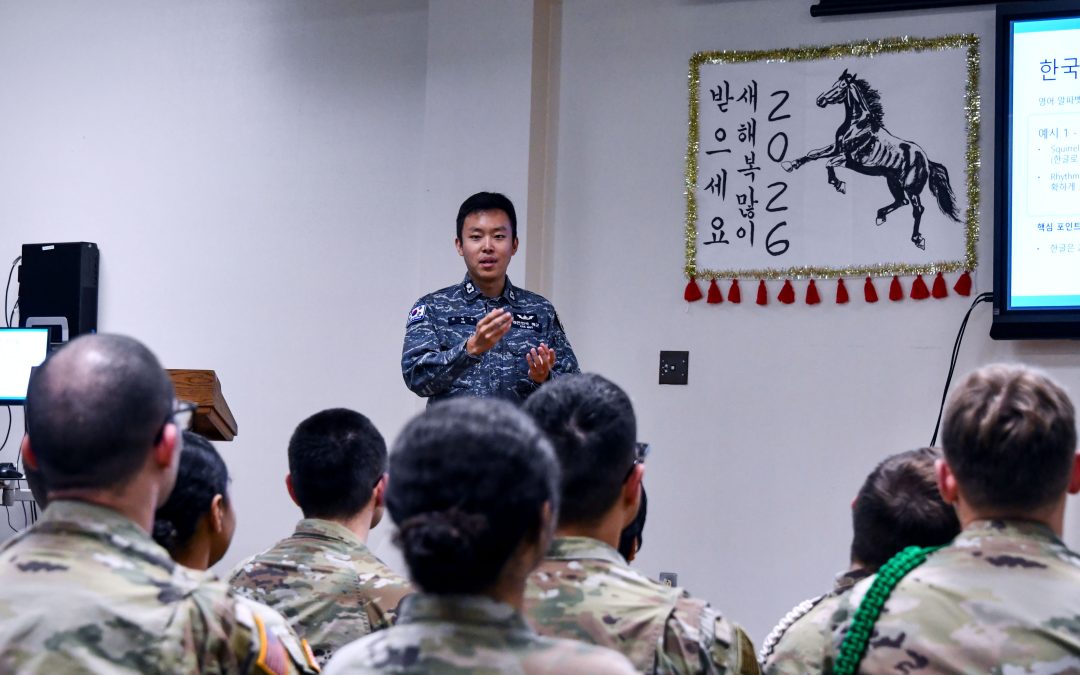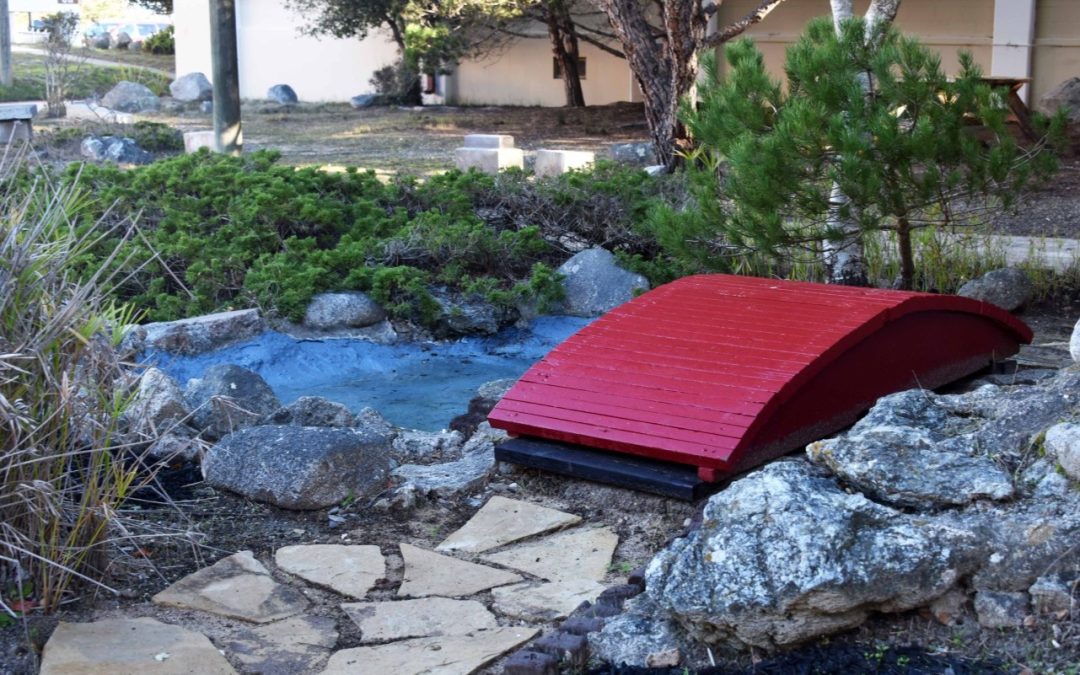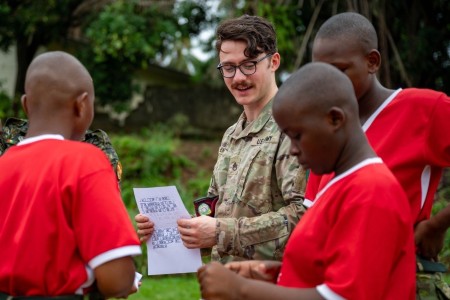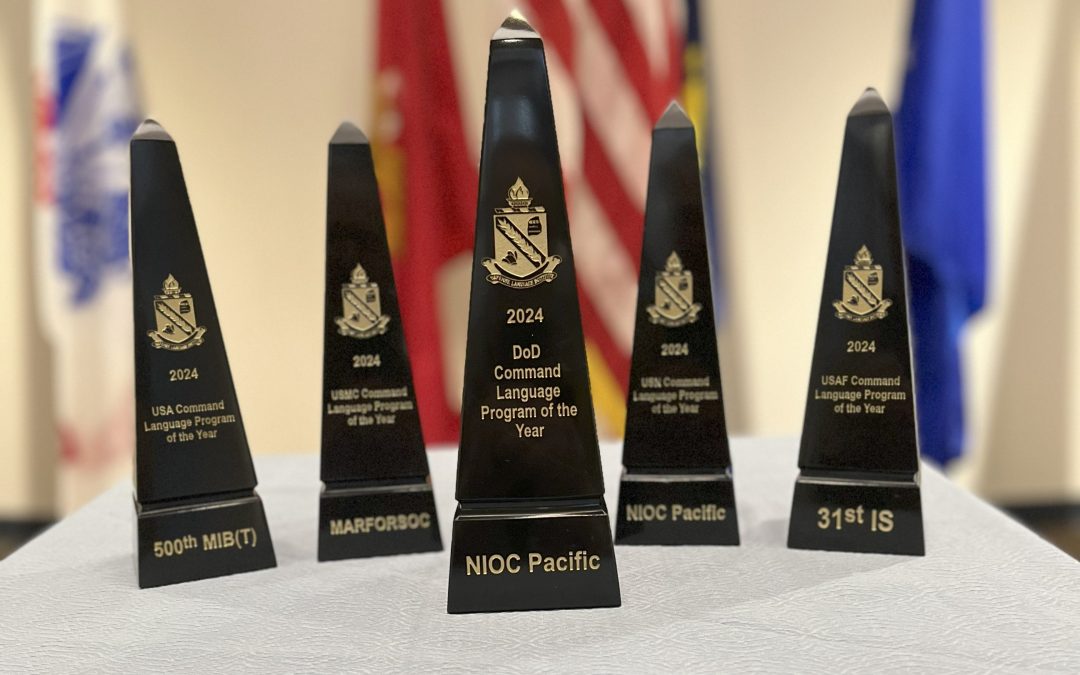By Tammy Cario
This year, the two recipients of the Soldier of the Year and non-commissioned officer of the Year titles went to two Defense Language Institute Foreign Language Center graduates.
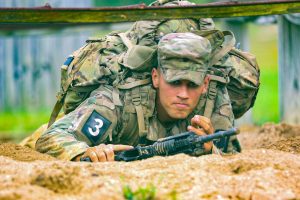
Spc. Justin Earnhart, a human intelligence collector representing U.S. Army Futures Command, completes a hand grenade qualification during the 2021 U.S. Army Best Warrior Competition at Fort Knox, Ky., Oct. 5, 2021. U.S Soldiers and noncommissioned officers test their physical, mental, and combat readiness during the competition through a series of trials including the Army Combat Fitness Test, weapons marksmanship, land navigation and a mystery event. This year’s event stands out from previous years by focusing on the total immersion of its competitors in tactical scenarios designed to test their physical and mental toughness. (U.S. Army photo by Staff Sgt. Nicholas Brown-Bell / 4th Cavalry Multifunctional Training Brigade)
Sgt. Justin Earnhart, who won Soldier of the Year, graduated from the Spanish Basic Course program and Staff Sgt. Adam Krauland, who won NCO of the year, graduated from the Chinese Basic Course program. Both were awarded in a ceremony at the Association of the U.S. Army Annual Meeting and Exposition held October 11-13 in Washington D.C. It was a year that marked the return to in-person competition following a virtual contest last year.
“Striving to reach the very heights of their craft and profession, each competitor sets a fine example for every one of us to follow,” said Army Vice Chief of Staff Gen. Joseph M. Martin during the ceremony. “By sheer determination, dedication and consistency, they fought through the mental and physical exhaustion and sometimes failure. But we can’t forget that failure is how we all learn … and grow.”
Earnhart hadn’t been at his command very long after graduation from DLIFLC when he signed up to compete in the Best Warrior Competition with the 470th Military Intelligence Brigade at Joint Base San Antonio-Fort Sam Houston as a way to put himself out there as a new Soldier without knowing it was an Army-wide event. And then he won.
“They said, ‘Alright, now you gotta get ready for a division contest in a couple months.’ I was not expecting it at all,” Earnhart said.
From brigade level to the final competition, Krauland and Earnhart trained and competed over the course of nine months. With events in categories such as ruck marches, rifle marksmanship and warrior tasks and battle drills where low crawling and dummy dragging are required, a military intelligence professional isn’t exactly high on the list of careers with such stringent physical requirements. But this year, it was two DLIFLC graduates who won.
Krauland has a theory. He believes it is his training at DLIFLC that helped him when he struggled with his classes.
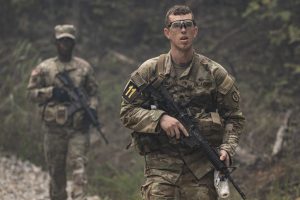
Sgt. Adam Krauland, a cryptologic analyst of the U.S. Army Pacific Command, patrols an area during the Casualty Evacuation mission as part of the 2021 U.S. Army Best Warrior Competition, Oct. 4, 2021, at Fort Knox, Ky. The Best Warrior Competition challenges the U.S. Army’s top Soldiers and noncommissioned officers through a series of events including the Army Combat Fitness Test, weapons marksmanship, land navigation and a mystery event designed to push a Soldier’s skills, abilities, Army knowledge as well their physical and mental readiness to the limit. (U.S. Army photo by Sgt. Roger Houghton/177th Armored Brigade Public Affairs)
“Just the skills I learned, the study skills in being able to learn Chinese and the different techniques played a huge role in my ability to prepare and retain the knowledge for this competition,” he said.
“It’s funny,” said Earnhart, “you would think that to an intelligence person or linguist [being physically fit] is not in their forefront or even should be.” But it’s in the military intelligence corps creed, he pointed out. The line “with a sense of urgency and of tenacity, professional and physical fitness” is what speaks to him. “Maybe I am an intelligence professional or a linguist but I’m also a Soldier.”
In the end, it wasn’t strictly the physical aspect that was needed, as Krauland learned. There was intelligence in the strategy, in the innovation needed for new situations or even in just using your energy efficiently during the 12-hour ruck march.
“I honestly say that intelligence plays a factor in every single event in the competition,” said Krauland.

